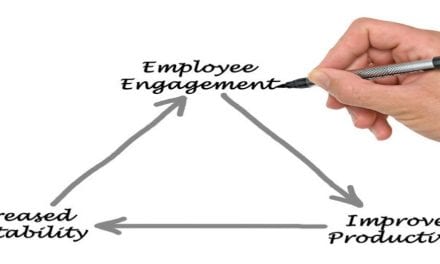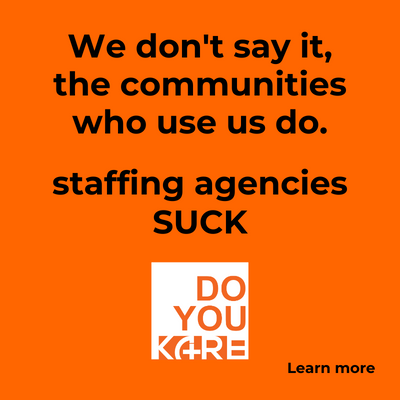By John Gonzales
I was an Executive Director for years, sitting in the same chair as many of you reading this. I was given this leadership position when I was a young lad of 25 – much too young. At the risk of having some of you do the math, that was in 1989. I was young and green – and so was our industry. In the years since, we’ve both grown up and learned some valuable lessons.
We are working in a business that requires from its leaders an internal conflict between intellect and compassion – the brain and the heart. As leaders in this business, you are required to make difficult, sometimes painful decisions – trying your best to balance empathy and business acumen. Do you have balance?
Does Your Company Allow for Striking a Balance? For Some Kindheartedness?
Consider Mrs. Jenkins – a gentle, sweet, God-fearing, long-term resident that can’t afford your upcoming annual rent increase, and there is no family or government program that can provide her financial assistance. If asked to pay more, she will certainly have to move out and this will devastate her. Mrs. Jenkins’ only family are your staff and her friends who live in your community. You have her rent increase letter on your desk. What do you do?
Your head says, “This is business. I can’t simply waive her increase and pass it along to everyone else.” Can you? Do you? Because, in effect, what you would be doing is forcing your other residents to subsidize Mrs. Jenkins’ housing, care and services. Do you open this door in the name of being compassionate? Do you do it again next year, and which other residents will be allowed through the door?
What’s on the Line?
What if your quarterly bonus is contingent upon getting all rent increases through? Does that factor into your decision?
I’ve been fortunate to mentor many leaders in our business and this is a point I put at the forefront: If you are not in a frequent state of conflict between your mind and your heart – in our business – then something is out of balance. Realize that this conflict is not something be dreaded or avoided but embraced. This is the business. We serve the most vulnerable segment of the population – they are our customers – their care and well-being is our product. But our customers also include the company for which we work and the financial partners who funded the community. Serving all ethically and with integrity can often produce this conflict.
What’s the Answer?
The is no easy answer, no bright “Ah-ha” light bulb to illuminate the right path for each difficult decision you must make. Rather, you develop the insight and experience that breeds wisdom that, when coupled with sensitivity and a servant’s heart, guides you through the maze of decisions you face. It’s not an easily or quickly acquired skill. It takes time in the trenches. It takes making mistakes and learning from them. Veterans in this business call them “battle scars.”
Making difficult decisions that affect the lives of our residents, of their families; decisions that affect your staff and their families – that’s the gig. Like a great Jazz musician, you must practice and play and then play some more in order to become proficient. There are no shortcuts.
Ours is a world where leaving your work-related cares and worries in the parking lot and shifting into “home” mode is tough. The ability to shut off your “work-mind” or “work-heart” is a skill that few have been able to develop. I confess that I haven’t. Even now, ghosts of past decisions I made when balance was out of reach haunt me.
I write this article from a desk in my home office. But I write this having been in the trenches like many of you now. I write this because I want to tell you that I understand the difficult job you are doing. The personal and professional conflicts you face and push through daily. Many of us have been in that “chair” and understand – and appreciate – what you do.
Are Great Leaders Born or Made?
A few years back I read Blink, by Malcom Gladwell – one of several books that helped me navigate my journey in this business. We are wonderfully and miraculously made. Our mind and heart are separate and yet joined. Our “gut feelings” are not simply feelings, but an output that your mind and heart provide based on all our prior experiences and feelings.
Maybe trusting your “gut” is a better choice.
What do you think?









I reply as a CCRC resident. As is often the case in this forum, I have no idea what “type” of senior living is the focus of an article (I’ve requested that “type” of community be identified by the authors, to no avail). So I read an article that doesn’t specify as a CCRC. That said, a hallmark of not-for-profit CCRCs is often the commitment NOT to ask a resident to leave because they’re no longer able to meet the financial obligations of residency. There is usually a Foundation created by the CCRC that can help.
I have a communications “gripe.” You’d be amazed at how many residents are unaware of this type of Foundation, to which some may be willing to contribute. If the residents are not knowledgeable, then more than likely the adult children (who may have taken over a parent’s on-going bill paying) are also unaware. I learned of this special fund when first coordinating my mother’s income tax information for return preparation — “Mom? What’s this check to such-and-such about?” At least she knew, and I learned. Now I’m the CCRC resident, knowing to inquire about this type of fund. But do my fellow residents know about it? Not. Do they know to ask? Not. Why not COMMUNICATE to your residents — who knows? Knowledge could lead to including a donation to this “help” fund in one’s estate planning.
Our CCRC just came out with a new Residents Handbook. A Residents Handbook is helpful, obviously, to the residents. But it’s also helpful to the adult offspring who want to know about the place their parent(s) have chosen. Did our new Handbook even mention this fund? Not.
So I request that as you cogitate on the subject posed here by Mr. Gonzales that you ask yourselves — how well am I communicating? Have key “subjects” been overlooked that might make an Executive Director’s job less stressful?